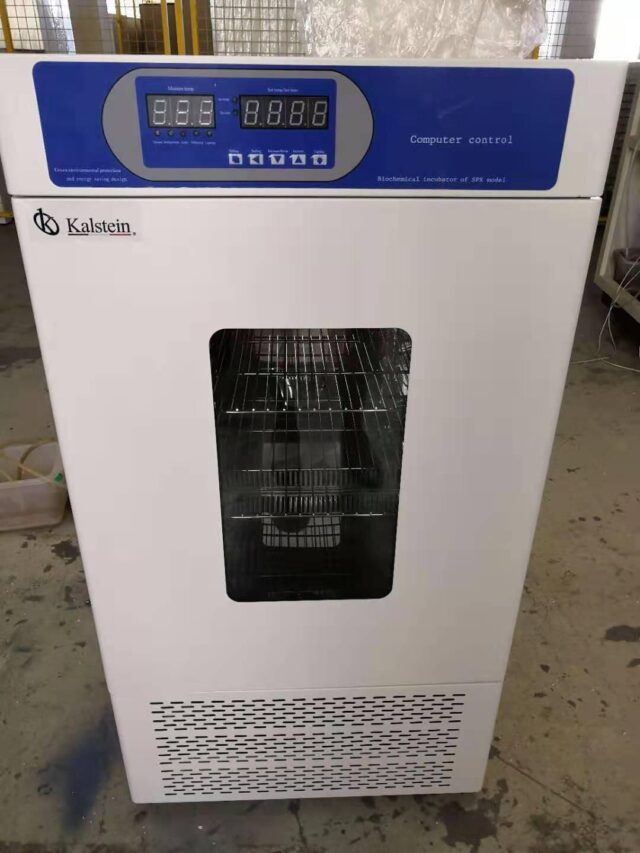Having a stable contaminant-free environment is a fundamental issue in any kind of laboratory, especially when it comes to the ones in microbiology field. Laboratory incubators provide this important feature that gives the comfort of working with cell and tissue cultures with special conditions such as temperature, humidity and CO2. We insist this is the ultimate equipment for the growing and storing bacterial cultures.
Incubators are necessary equipment for any laboratory conducting cell culture and tissue culture work. Incubators protect cells from changes in temperature, humidity, CO2 and O2. Water or air jackets can regulate temperature. Humidity water maintains constant humidity and fans enable O2 circulation. Modular and standard CO2 incubators are controlled with thermal conductivity or IR sensors.
Laboratory incubators equipment
When it comes to cellular biology experiments, microbiology, important institute researches incubator are the item to have in your laboratory. Kalstein products will provide you a high performance equipment giving you the comfort you need to have in your lab. As you know, having the ideal incubator gives you the opportunity to recreate the living process through experiments maintaining the right temperature, humidity and other factors.
There are different incubator’s types among you can find dry bath incubators, biological oxygen demand units which are a ideal for insect or plant studies, shaking incubators, mold incubators and a wide variety of laboratory test chambers.
If you cannot decide on which type of incubator you want to buy, one of the first aspects you have to keep in mind is the incubator’s size. There are different sizes too, such as tabletop units to room-size units. This means the choice is up to you and it depends on your lab’s size.
Another thing to keep in mind is the kind of laboratory you are running, because besides tissue culture, laboratory incubators are essential for biochemical and hematological studies, pharmaceutical work and food analysis.
Laboratory incubators capacity
As mentioned above, one of the most important things to keep in mind is the incubator’s size and capacity. You must estimate the number of samples that you will need to incubate at the same time and the answer to that will give you some ideas about the proper internal volume you need your incubator to have. There are other important factors such as temperature, humidity and CO2 ranges. You can ask yourself: Are these elements necessary for my work? Will I need a water source?
Another thing to remember when buying an incubator is that you have to make sure the incubator has an even heat distribution and elimination of cold sports. You should know that incubators could be water-jacketed or air-jacketed; in addition, incubators may use another direct heat source. In the case of CO2 incubators, some of the models include thermal conductivity detection.
Certified laboratories need to meet accuracy and reproducibility standards as a fundamental requirement, which is why you need to have an incubator that ensures those features. In addition, reducing contamination is another goal an incubator must achieve by HEPA filtration and the use of antimicrobial copper components in the chamber. That is why you can have the option of looking at your samples through a glass door. This way you can check it anytime you want.
At Kalstein laboratory equipment we like to offer our clients the best technology available, which is why we have incubator models with integrated touch-screen displays, programmable alarms, data storage and more in order to make your incubator a more convenient device for your laboratory. Visit our catalog HERE

